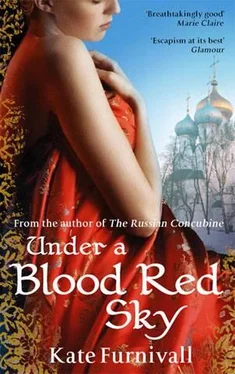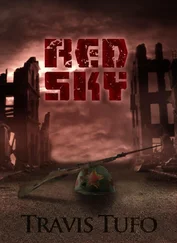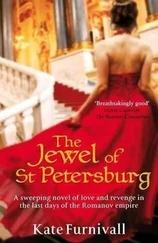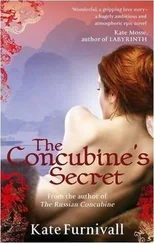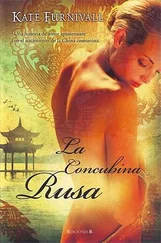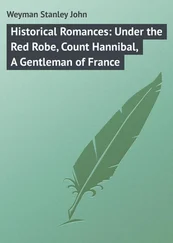And then a small drab-brown bird opened its beak and the sound that poured forth brought her winging back to the human race. To the memory of a Chopin waltz and a young man’s arm sweeping her off her feet. The ache grew worse inside her.
‘Yes,’ she said to the bent back of the woman from Moscow. ‘You can feed on beauty.’
‘ Blyad! ’ the woman swore contemptuously. ‘You’ll be dead before the year is out.’
Anna had no intention of dying. Not yet anyway.
She sank her axe into the scented white wood with determination, sweeping away the last tangle of feathery branches and moving on to the next trunk in the row. Around her, for as far as she could see, bent figures chopped and hacked and cursed their way through the thousands of felled pines, preparing them for their rafting trek downriver. Anna slapped a hand on the insects that settled greedily on her sweat-soaked skin. The mosquitoes were even worse than usual today. The sun burned above her, heating up this water-logged landscape so that the marshes hummed with newly-winged life. The insects drove everyone mad. But she’d promised Sofia that she would hold on.
Sofia, be quick.
She wouldn’t let herself think of the possibility that Sofia might be dead. It was too agonising a thought, too black and too huge to fit inside her head. Instead she watched the forest each day for movement among the trees, for a shadow that shouldn’t be there. She remembered clearly the first time she ever laid eyes on Sofia. It was back in the bitter winter of 1929 when Anna had not long been a prisoner in the camp and was as green and as soft as the wood she was chopping into.
‘Davay! Davay! Let’s go, scum of the earth!’
The guards had stamped their feet on the hard packed snow, in a hurry to move the prisoner brigades on to the next timber haul a verst away.
‘ Bistro! Quickly!’
Anna had cursed her axe. It was too small and too blunt, the useless blade had stuck fast in the wood.
‘ Bistro! ’
Anna had knelt on the branch, widening the gap between it and the trunk, and yanked the blade free. Everything hurt: the muscles in her back; the skin on her knees; the blisters on her feet; the tendons in her wrists; even the teeth in her head. And now lesions were appearing on her face and they frightened her. She’d hacked again and again at the last two branches but each time an iron-hard knot in the wood resisted her blows. She began to panic.
Frantically she tore at the branch with her hands, aware of the other brigades moving off, but her gloves had ripped and pain stabbed into her finger. A hand, strong and muscular, pulled at her shoulder and pushed her roughly to one side before she could object. An axe swung in a wide arc a hand’s breadth from her cheek, a blue smear in the white air, its blade finely honed. It had sliced neatly through the branch, which flew off with a crack into the trampled snow, followed almost instantly by the second one. The tree was stripped and ready to be hauled.
Anna had studied the owner of the axe. She was a tall young woman, wearing the regulation rough camp dress swamped under a padded jacket with her prison number on front and back, and a wool cap with earflaps tied under her chin. Her legs were wrapped in layers of rags and on her feet were shoes cobbled together out of birch bark and old rubber tyres, held together by string.
‘ Spasibo ,’ Anna had said gratefully.
Axe blows meant using energy and energy was like gold dust round here, so you didn’t waste it on others. Anna’s rescuer looked back at her with large blue eyes, her skin as grey as the sky. But no lesions.
‘ Spasibo ,’ Anna said again.
‘Your chopping technique is all wrong,’ the other prisoner said. ‘Swing higher and the axe head gains momentum.’ She had shrugged and started to walk away.
‘My name’s Anna,’ Anna called to her retreating back.
The young woman turned, stared thoughtfully, eyes narrowed against the wind.
‘I am Sofia.’
That was in 1929, only four years ago, yet it felt like a lifetime. Back in the time when four hundred grams of stinking black bread a day had seemed like starvation. When it lay heavy as damp clay in the stomach while she strove to work harder in the forest, now that her technique with the axe had improved. The camp Commandant made clear the simple rule: the more you worked, the more you ate. But only when she and her brigade reached the full norm would she receive the full ration paiok of seven hundred grams.
‘For seven hundred grams of bread I would sell my soul.’
She hadn’t meant to say it out loud. But she’d noticed odd things happening to herself in those early days of shock at finding herself a prisoner: at night, when her dreams grew too painful, she was digging her nails into her thigh so fiercely that they left scarlet welts in her flesh; and she’d started speaking aloud the thoughts that were meant to stay in her head. That worried her. She was losing control. She’d glanced round the barrack hut to see who may have heard.
Most of the women were huddled at each end where the stoves gave out a trickle of heat, not enough to keep the ice off the inside of the grimy window panes but sufficient to give the illusion of warmth. Others lay silent on their beds. The hut contained ten three-storey bunk beds, nudged tight against each other down both sides of the room, with every bed made of a hard board that was meant for two people but was packed with five each night. At times it was impossible to turn over in bed or do anything but lie rigidly on one’s side – hip bones soon developed sores, and there was a pecking order that settled the strongest and the fittest on the top boards. This evening by lamplight some of the women were playing cards they’d made out of scraps of paper and one group was bickering loudly on a top bunk as they bargained with each other for makhorka and salt.
‘Your soul’s not worth seven hundred grams of chleb.’
Anna looked up, startled. The voice came from Sofia, the girl who had helped her. Anna was sitting on the edge of her bed board on the bottom bunk near the draughts of the door, attempting to mend a hole in her glove. The needle she’d created from a splinter of wood and the thread she’d unravelled from her blanket, and it was going well despite the dismal light from the kerosene lamps.
‘My soul,’ Anna said firmly, ‘is worth a good breakfast. And I don’t mean the filthy kasha slop we’re given every morning.’
The blue eyes of the tall young woman scrutinised her carefully, as though she were a newly discovered specimen under a microscope lens. Sofia was leaning against the upright of Anna’s bed and she looked tired, her shoulders wrapped in a dark brown blanket that made her silver-blonde hair look brighter by comparison. It was cropped short, as was all the women’s hair, the authority’s compulsory solution to the problem of head lice. Her skin possessed the grey ashy tinge of malnutrition, but she had no sores or lesions and her teeth were astonishingly white.
‘I mean,’ Anna continued, ‘a breakfast of three fried eggs, yolks yellow as suns on the plate and whites as fluffy as summer clouds, and a thick slice of pork, pink and succulent with a fine grain to it and a slender curve of yellow fat that melts on the tongue like…’
‘Go on, go on.’
It was the Ukrainian babushka who spoke, tapping a bony hand on Anna’s back. She was lying on her tiny bed space behind Anna, who had thought her asleep because for once she wasn’t coughing, but the mention of food had even broken through to her dreams.
‘The bread,’ the old woman whispered, ‘tell me about the bread to go with the eggs and the pork.’
Читать дальше
